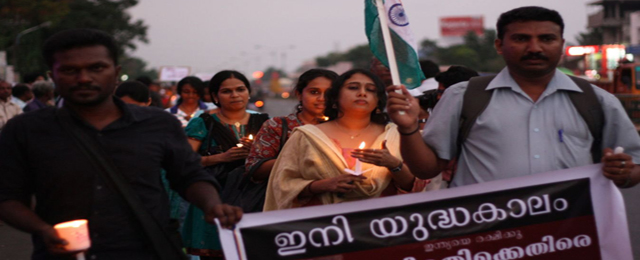Thanks to an active judiciary and growing public angst, the Supreme Court has passed some really path-breaking orders that are bound to have a long term effect on cleansing the Indian polity. Some of these significant orders are – (a) the application of Right to Information Act on politicians and political parties; (b) debarring any politician with a criminal record or implicated in any crime that attracts a minimum of 2 years imprisonment; and (c) giving the voter the option not to vote for any candidate by providing a ‘None of the Above’ (NOTA) button on the EVM (Electronic Voting Machine).
The Right to Information (RTI) Act was passed in Parliament 2005, giving any citizen of India the right to demand and get information on any issue related to a public authority or government body, who in turn is mandated to respond within 30 days. This is expected to bring in transparency and accountability on the part of the government bodies, which till then were hiding behind the Official Secrets Act of 1923.
As a result, the RTI Act has helped expose a lot of corrupt practices and corrupt people and all their wrong doings put in the public domain. Now the application of RTI on politicians and political parties will remove the cloud cover under which these people used to operate. Obviously there is much noise and stiff resistance among the political class. But with people making their feelings known vociferously and the courts doing their bit, they are bound to toe the line.
The last week has seen some high drama over the Supreme Court order debarring convicted politicians from active politics. The current government, in its haste to protect some prominent politicians in Parliament with the 2014 elections in mind, tried to buck growing public opinion and pass an ordinance to overthrow the Supreme Court order. But better sense prevailed with some section of the political class in the face of voluble dissent from the public against the ordinance. As of yesterday, the ordinance has been consigned to the dustbin. This immediately resulted in two members of the current government being sent to prison for conviction in corruption cases against them. Many more in the same boat have an uneasy wait till the courts give their verdict.
The latest order from the Supreme Court, providing a ‘NOTA’ button on EVM’s, gives the citizen the right not to vote for anyone in case he finds none of the candidates suitable. Till now the only option for the voter was to abstain from voting, which is really not desirable if the person wants to exercise his or her franchise. As a result, only around 50% of the population would take the trouble to vote, showing complete apathy to the democratic process. This was more pronounced among the urban middle class, who are left with no decent options to choose from.
The rural population and minority sects have their own motivations to vote and therefore historically the political class was content with wooing them and leaving the urban middle class out of their calculations. But with this new order, the middle class will get to show the politician who is boss. By choosing the NOTA button the citizen has effectively reduced the chances of the set of candidates for that particular seat.
These three orders have now given the ordinary citizen the hope of seeing a cleaner set of politicians. The political parties will now be wary of who they field. Criminal elements will have a tough time getting political cover. The growing middle class has made itself heard and will now expect all the political parties to act responsibly and field only those candidates that can face up to scrutiny.
Looks like a new beginning for Indian politics. Time will tell.
*Image by Binny V.A.






Be the first to comment on "Indian Politics: Kicking Out Criminals"